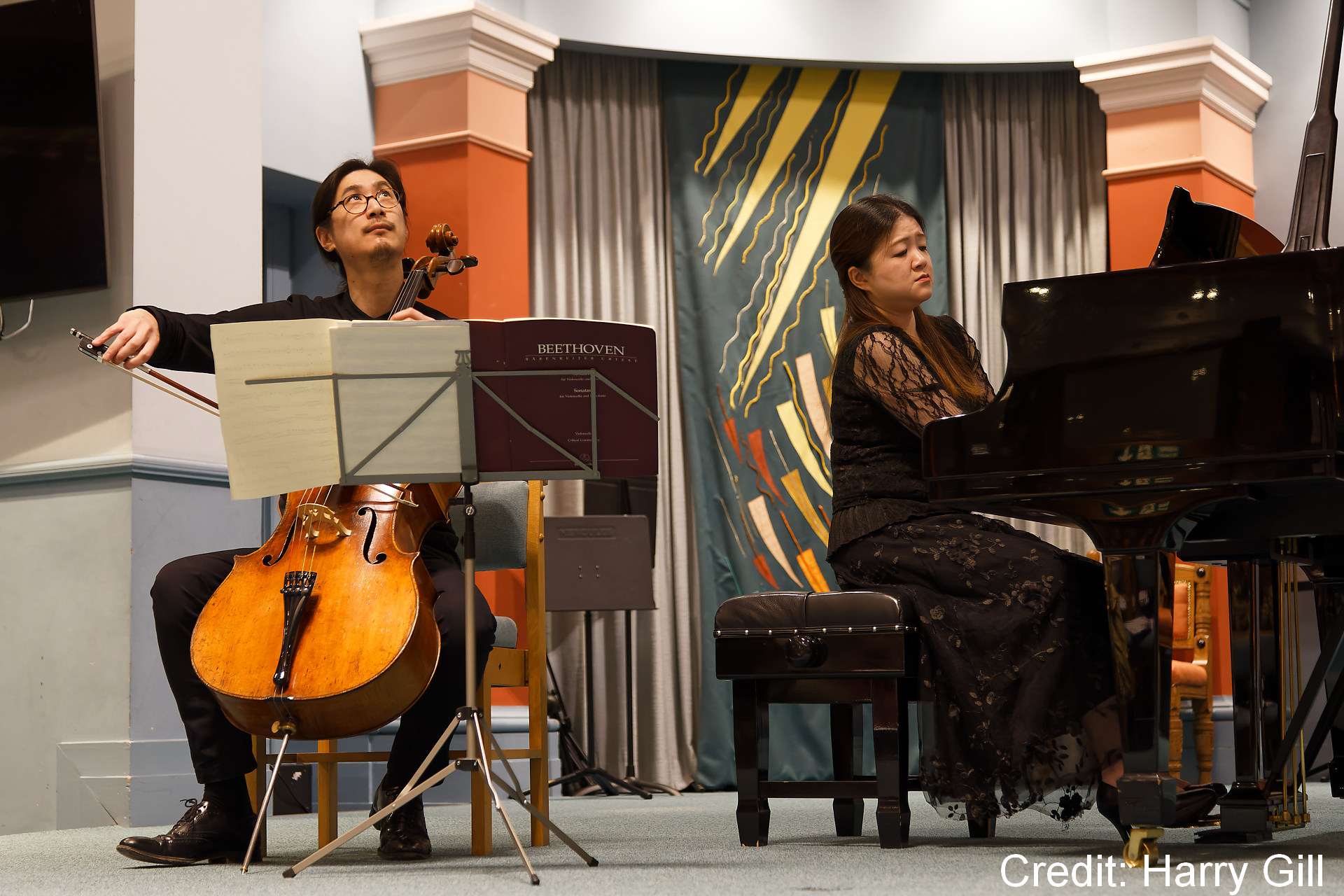Concert Review
Pei-Jee Ng (Cello), Chiao-Ying Chang (Piano) – 13th January 2025

Exquisitely Cool Recital
Penrith Music Club is to be congratulated once again for arranging at such short notice another duo to perform substantially the same programme. The cellist Pei-Jee Ng and pianist Chiao-Ying Chang must also be thanked for stepping in so gallantly.
Their rapport was evident throughout their performance, having performed for some time in a trio together. They played with admirably cool restraint, allowing the music to speak for itself; three major sonatas, by Beethoven, Debussy and Brahms, all works of these composers’ maturity, wrapped in smaller gems of the repertoire.
Beethoven’s last cello sonata displays less characteristic humour and more of the reflective composer of, say, the slow movement of his 9th Symphony, though there was a hint of youthful playfulness, fully understood by the players, at the beginning of the last movement, which echoed Beethoven’s First Symphony finale – a simple rising scale, which launched an energetic fugue. There were occasions when Pei-Jee’s delicate cello playing was all but overwhelmed by the piano part, but one should consider that, as in all these sonatas, each composer was a consummate pianist.
Debussy’s sonata could not be more different to the contemporary ‘En Blanc et Noir’ which Peter Donohoe and Martin Roscoe played in the first concert of the season. Gone is the militarism and gloom. In spite of the formal nod to his 18th century predecessors, this sonata reminds one very much of Debussy’s Preludes, particularly the more impish – and Spanish referenced – ones.
Brahms’ first cello sonata is a tour de force, at once both typical of what we perceive as Brahms’ style but also full of reference to Baroque forms and structure. There were also many delicate passages and, notably in the last two movements, some striking passages where the cello and piano ‘doubled’ the melody. Pei-Jee and Chiao-Ying performed this with all the passion and restraint that was required.
And so to the shorter gems; all fine compositions, Faure’s Élégie and Bruch’s Kol Nidrei were freshly played, again without indulgence, but with all the appropriate tenderness they deserve. Which just leaves the most perfect gems of all, Vaughan Williams’ Six Studies in English Folk Song – a dry title for 6 perfect compositions given appropriately elegant and poised interpretation.
Given foot-tapping applause, the pair came back to give us a rendering of Dvorak’s ‘Songs my mother taught me’. Did I mention it was Chiao-Ying’s birthday the day of the concert? It was the substantial audience who received the gift of Chiao-Ying’s and Pei-Jee’s fine, magical music-making.
Charles Ritchie